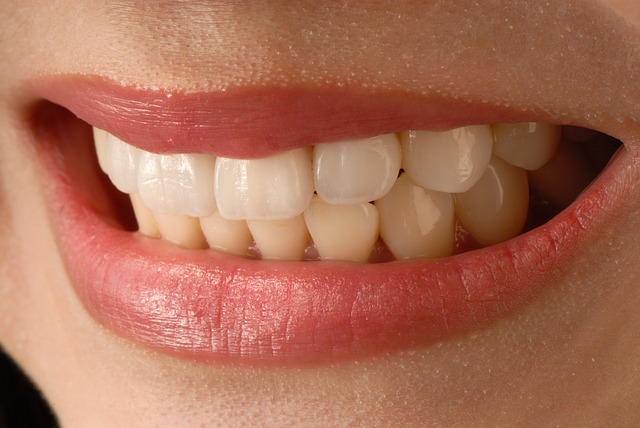Tooth sensitivity can be a sharp, sudden pain that occurs when you consume hot, cold, sweet, or acidic foods and beverages. It’s a common issue that affects millions of people, often causing discomfort that disrupts daily life. Understanding how to prevent and manage tooth sensitivity is key to maintaining a pain-free, healthy smile. Here’s everything you need to know about the causes, prevention, and treatment with the best dentists caernarfon.
What Causes Tooth Sensitivity?
Tooth sensitivity usually occurs when the protective layers of your teeth, such as enamel or cementum, wear away, exposing the dentin underneath. Dentin contains microscopic tubules that connect to nerve endings. When exposed to certain stimuli, these nerves can trigger sharp pain or discomfort. Here are some common causes:
- Brushing Too Hard or Using a Hard-Bristled Toothbrush: Aggressive brushing can wear down enamel over time, exposing the sensitive dentin layer underneath.
- Gum Recession: This condition, often caused by gum disease, can expose the roots of your teeth, leading to sensitivity.
- Tooth Decay or Worn Fillings: Cavities and old, worn fillings can expose the inner parts of your teeth, causing sensitivity.
- Acidic Foods and Drinks: Consuming high amounts of citrus, soda, or other acidic foods can erode enamel, increasing sensitivity.
- Teeth Grinding (Bruxism): Grinding your teeth can wear down enamel and lead to tooth sensitivity.
- Whitening Products and Certain Toothpastes: Some whitening agents and tartar-control toothpastes contain ingredients that may increase sensitivity in some people.
Tips to Prevent Tooth Sensitivity
Preventing tooth sensitivity starts with good oral hygiene and making mindful choices about your oral care routine. Here are some effective strategies to help prevent sensitivity:
- Use a Soft-Bristled Toothbrush
Opt for a soft-bristled toothbrush to reduce the risk of enamel erosion. Brush gently in circular motions rather than aggressive back-and-forth scrubbing to protect your teeth and gums. - Choose Toothpaste for Sensitive Teeth
Desensitizing toothpastes, such as those containing potassium nitrate or stannous fluoride, help block nerve signals from reaching the tooth’s surface, reducing sensitivity over time. Regular use is key to achieving the best results. - Avoid Acidic Foods and Beverages
Limit your intake of highly acidic foods and drinks, such as soda, citrus fruits, and vinegar-based foods. Rinse your mouth with water after consuming acidic items to neutralize the acids. - Maintain Proper Oral Hygiene
Brush at least twice a day and floss daily to remove plaque and prevent gum disease, which can contribute to sensitivity. Be sure to replace your toothbrush every three to four months or sooner if the bristles become frayed. - Use Fluoride Treatments
Fluoride strengthens tooth enamel, making it more resistant to decay and sensitivity. You can use fluoride mouthwash or ask your dentist about in-office fluoride treatments for extra protection. - Wear a Mouthguard If You Grind Your Teeth
If you grind your teeth at night (bruxism), wearing a custom-fitted mouthguard can help prevent enamel wear and reduce sensitivity. - Rinse with Salt Water
A saltwater rinse can help reduce inflammation and discomfort associated with sensitivity. Mix a teaspoon of salt with warm water and rinse your mouth gently.

Treatments for Tooth Sensitivity
If you’re already experiencing tooth sensitivity, there are several treatments available that can help manage the condition:
- Desensitising Toothpaste
Continued use of desensitising toothpaste can help reduce sensitivity over time. Look for products with active ingredients like potassium nitrate or stannous fluoride. - Fluoride Gel or Varnish
Your dentist can apply fluoride gel or varnish to the sensitive areas of your teeth, which strengthens enamel and reduces pain. - Dental Bonding
For exposed roots or worn enamel, your dentist may recommend bonding resin to cover sensitive areas and provide relief. - Gum Grafting
If gum recession is causing sensitivity, a gum graft can cover the exposed roots, reducing sensitivity and protecting your teeth. - Root Canal Treatment
In severe cases where sensitivity is caused by nerve damage, a root canal may be recommended to remove the damaged nerve and seal the tooth.
When to See Your Dentist
If your tooth sensitivity persists or worsens, it’s essential to consult with your dentist. Sensitivity can sometimes be a sign of a more serious underlying issue, such as tooth decay, a cracked tooth, or gum disease. Your dentist can identify the cause of your sensitivity and recommend the appropriate treatment to restore your comfort and oral health.
Final Thoughts
Tooth sensitivity is manageable with the right preventive measures and treatments. By making small changes to your oral care routine and seeking professional advice when needed, you can keep your teeth healthy and free from sensitivity. Remember, a pain-free smile starts with taking proactive steps to protect your teeth every day!
If you’re experiencing tooth sensitivity, don’t hesitate to schedule an appointment with your dentist for a personalised treatment plan.






More Stories
Wie Sie Ihre Zähne gesund halten
Unsichtbare Zahnspange: Die Revolution der Zahnkorrektur
Caring for Your Cosmetic Dental Work: Tips for Longevity